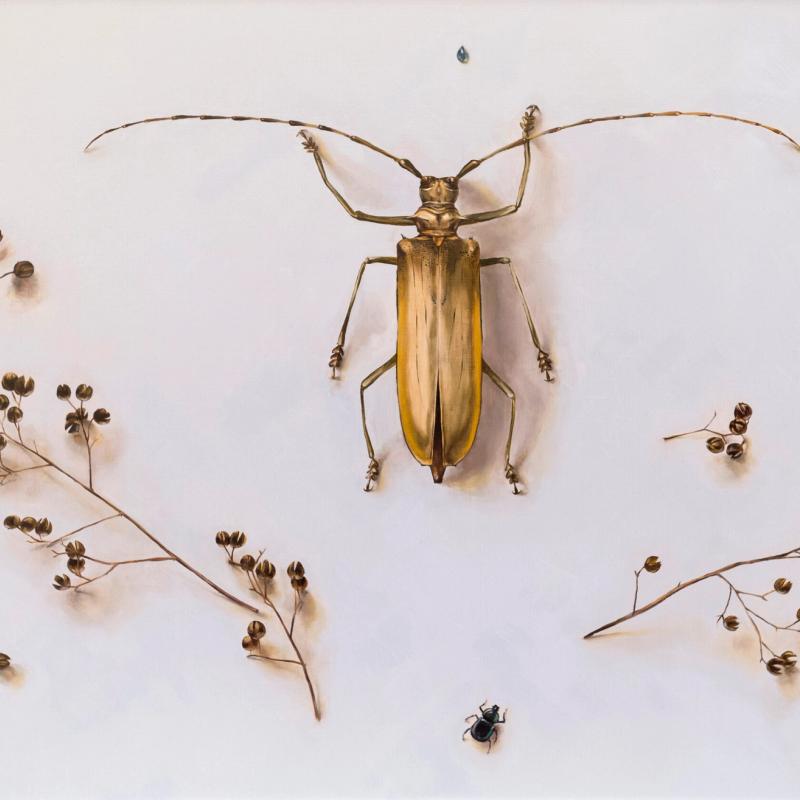Drift
by Luisa A. IgloriaAfter many years, the river ran into the river,
and the wilderness thickened beside it.
Body overgrown with moss, love made
a hunted sound calling from the nether layers.
Clouds of birds rose to pin themselves
to branches. They looked so much like leaves.
Dirt rained down when I shook them loose
and they pooled like dark pods in my hands.
Every time we looked for the moon,
a different planet floated into view.
Follow those flashes of light and see
where islands disappeared. It’s said
every lighthouse is visible underwater,
a cake topper ringed with flickering candles.
Grown now out of their first abandonment,
the children know only this shore:
haze of vanished honeysuckle stenciled
on a trellis, burns and coppered bullet shells.
Imagine a dream like air that used to live
inside a gold balloon, and the string
just out of reach of our hands. Imagine
each day a new season, change after change
knocking to be let in, and quickly—are those
the same curtains that billowed over Hiroshima,
Leyte, Manila Bay? They still make the sunsets
unbearably beautiful—gold-streaked indigo,
mutinies of tamped-out fire where
warships, rigs, and galleons once docked in
navy shipyards and blue coves. Once,
we smoothed the sands and painted stones.
Once, hundreds fell out of the sky and into
the waters they hoped would save them.
Place a hand on a headstone and the other
over your heart. When you feel a tremor,
quietly pick up a stick and write in the loam
the first name that comes into your mind.
Remember the taste of fruit you know now
only as a color: red perhaps, seed and heart,
spikes encasing the smallest knob of tender-
ness. At night, someone calls for stories:
tales that begin in dread and finish
with three or more tests that must be
undertaken—Except we need to be careful:
it also means the business of undertakers.
Ventriloquists for the dead, somehow
they know how to interpret last wishes.
We should be so lucky to have, in our own
time, a representative of the most internal.
Xanthates, acids, alkali in the soil; bleached
particles of all that’s disappeared before us.
Yeast bubbling in the wood, soft, spongy
pockets that open wherever we walk. Endless
zooplankton: another name for wanderer; eternal
jellyfish wrested from home, adrift in the universe.

